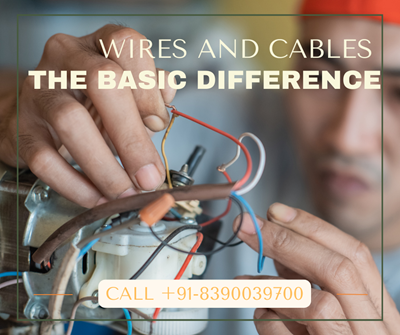Difference Between Wires & Cables
For a manufacturing company to run, wires & cables are an inevitable part of the landscape. They are both used to transmit electrical signals and power, and are often said in interchangeable terms. But as one of the top wires & cables manufacturers, we duly understand the importance of knowing the use of both the products in their own spaces. People who are confused between these two terms must realize that they are built and used differently.
Some of the basic differences between wires & cables
are:
●
Industrial wires are single conductors, either made of
copper or aluminium, and covered with an insulating material. The industrial
cables like our best-selling Garutmaan cables, consist of various wires bundled
or twisted together within a protective shield. It helps to protect the device
from environmental dangers like dampness, chemicals, and physical harm.
●
While the wires are used for simple, point-to-point
connections for running power, the cables are used for complex and specific
applications. Our auto cable manufacturers provide solutions for power
distribution, control systems, data transmission, and communication within
industrial machinery and infrastructure.
● In wires, there are straightforward variations, such as solid wire that offers lower resistance and stranded wires that offer flexibility and longer life. The different types of cables are power cables, control cables, instrumentation cables, fiber optic cables, and more.
The choice between the two depends on the specific
requirements of the application and the environmental conditions. Contact the
UNI-TECH Automation Manufacturers for automotive wires & cables solutions.




Comments
Post a Comment